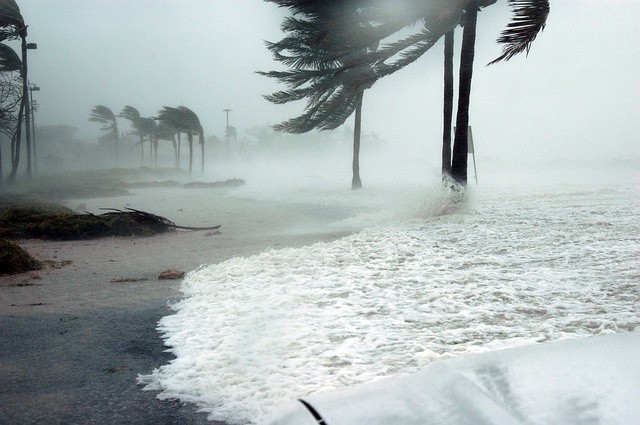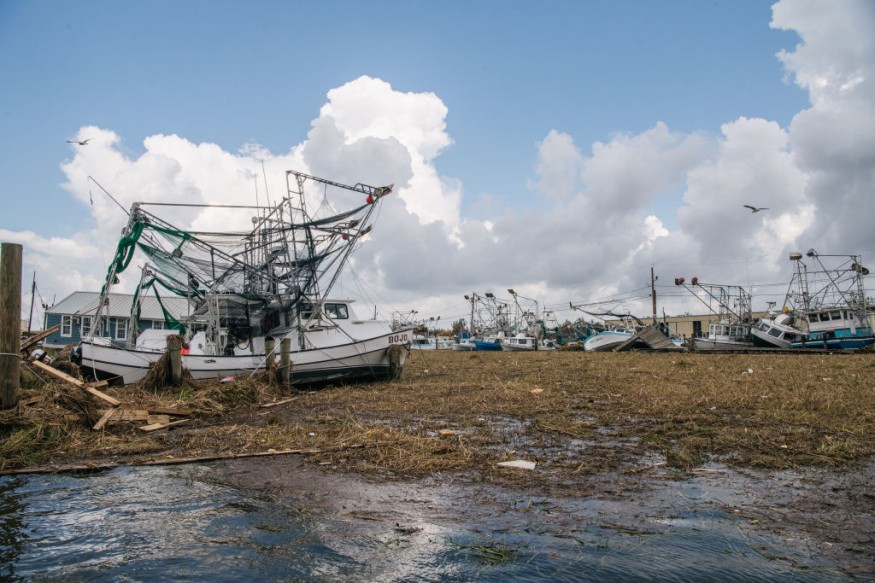Houston and Galveston could be devastated by an intense hurricane, rendering the entire region uninhabitable for years. Houston is a particularly vulnerable because it is located on the Texas Gulf Coast and has been hit by several big hurricanes in the past, including Harvey.
Although the damage was in the billions of dollars, the city could recover and remain together. However, many analysts believe that Houston will not be so fortunate in the future.
According to Terence O'Rourke, an environmental attorney and hydrology expert with the Harris County Attorney's Office, future hurricanes could displace thousands (if not millions) of people while rendering broad swaths of southern Texas uninhabitable.
He is highly concerned about an environmental disaster caused by a Hurricane, describing it as "America's Chernobyl."
Related Article : Meteorologists Predicts that the Atlantic Hurricane Season Will Inevirably Be More Aggressive
Strong Gusts

Strong gusts in Galveston, according to O'Rourke, could cause shipping containers to ram into thousands of chemical and oil storage tanks. And if that happened, the results would be catastrophic on a worldwide scale. Terence O'Rourke says:
"There are hundreds of chemical tanks and refineries with compounds that are so dangerous, volatile, and explosive that the result could be the worst environmental disaster in human history. Downtown Houston might be flooded with lethal chemicals, causing entire communities to be relocated, and Galveston Bay could transform from a thriving natural system to a massive toxic pond."
It's worth noting that in the event of a significant hurricane, power would be out for several weeks, months, or perhaps longer. During an interview with ABC News, Harris County meteorologist Jeff Lindner said:
"We're not going to get electricity back on in a day or two when a strong hurricane strikes here. It'll take a long time to get the power and infrastructure back up and running."
Hurricanes Getting Stronger
Hurricanes in the Atlantic are becoming more powerful. Yale Climate Connections claims that "Hurricanes Harvey, Irma, Maria, and Michael in 2017 and 2018 drew much attention for their rapid intensification, which is defined as a wind speed increase of at least 35 mph in 24 hours.
A study that looked at the hurricane records in the Atlantic basin from 1986 to 2015 discovered that rapid intensification increased at a rate of 4.4 mph per decade.
The study's authors linked the increase in intensity to a change towards the warmer phase of the Atlantic Multidecadal Oscillation, a natural phenomenon.
Hurricane Preparedness

Whether you need to stay in your house or establish and follow a storm evacuation plan, preparing for hurricanes in advance and understanding what to anticipate when one hits is one of the smartest things you can do. Find helpful safety suggestions below on how to prepare for a hurricane, keep safe during the storm, and deal with the aftermath once the storm has passed.
You may require goods during and after a hurricane to keep your family safe and healthy. Keep in mind that a hurricane could knock out your power and water. You can potentially be unable to drive due to vehicle damage. Roads may be flooded or closed.
That's why it's wise to be ready by stocking up on everything you might need.
For more climate and weather updates, don't forget to follow Nature World News!
© 2025 NatureWorldNews.com All rights reserved. Do not reproduce without permission.





